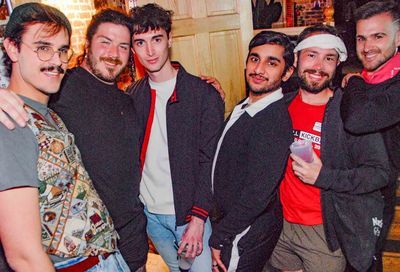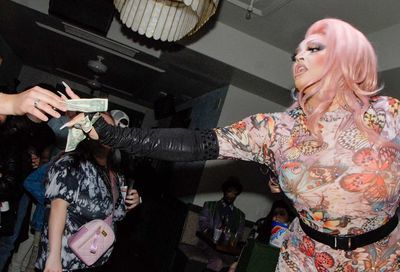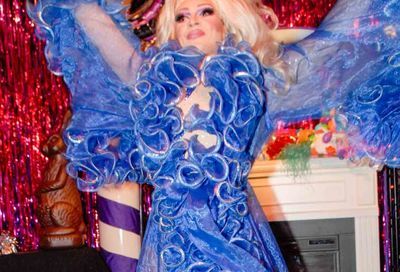Lambda Center Cuts
Director says too few patients for gay-specific programs
Three and a half years ago, amid a period of fiscal turmoil at the Whitman-Walker Clinic, the alcohol- and drug-treatment efforts of the Lambda Center were transferred to the Psychiatric Institute of Washington, in an effort to stabilize the clinic’s budget crisis. Since then, as a joint effort by WWC and PIW, the Lambda Center has offered three programs for GLBT patients: inpatient care, partial hospitalization and intensive outpatient care. That is, until now.
On Nov. 28, two of those programs will be cut, according to Lambda Center’s program director, Michael Rubin. He says the cuts are due to financial problems involving both the current economy and insurance companies.
”For the past three years, the Lambda Center outpatient program has not turned a profit,” he says. ”In fact, it has not even cut even. It’s been operating at a loss — a significant loss — [of] a few thousand dollars.
”The number of patients coming in, the revenue coming in, doesn’t offset the expenses that the program costs. If we had more volume coming in the door, it would offset the expenses. We’re a for-profit hospital. We want to serve the community, but we’re not even [meeting] our costs.”
Of the three programs, the one remaining is the inpatient program, designed to help GLBT people who are ”suicidal, psychotic or in need of detoxification from substance abuse,” says Rubin. With patients housed onsite, this is the most intensive program.
At this time, PIW does not have any inpatient-care patients, but GLBT patients are expected to seek services soon, particularly with the holiday season approaching.
Rubin says cutting the other two programs will affect 12 GLBT patients.
”All 12 of those are being discharged, and out-placed,” he says. ”We’re linking them with whatever services they need. We have a social worker who works with the patients and he’s meeting with them individually. He researched the different treatment options out there.”
With the exceptions of Whitman-Walker and another nonprofit group, Us Helping Us, which concentrates on the needs of black gay and bi men and transgender Washingtonians, Rubin points out that there are no other local mental-health and substance-abuse groups that offer services specifically for GLBT people. Some local hospitals offer programs for GLBT individuals and couples, but not in the form of group therapy. Rubin says group therapy is important for patients in order to be able to relate to each other through the recovery process.
”Several of our patients have progressed, who have been with us for quite some time in treatment. They’re ready for exploring individual therapy,” Rubin says, explaining that these patients will likely fare better when the PIW programs are cut. ”For others, we’re just doing what we can in terms of placing them in mainstream programming.”
While the program cuts may be painful, Rubin says they will provide PIW with an opportunity to ”beef up” PIW’s inpatient-care program ”and provide the highest level of treatment possible.”
”It really comes down to the quality of programming and that’s one thing we’re really good at,” he says. ”Our therapists that we have are very, very good.”
Therapists will try to continue to offer a monthly, onsite meeting for the displaced patients, Rubin says.
”It’s a free service, not billable to insurance, because the patients did really form a sense of community among each other. And that’s one of the more important things in getting better: their mutual support. …
”We can offer that until we can eventually return to outpatient programming. But we would need much higher numbers coming in through the door.”
For more information about the Lambda Center and its services, visit www.thelambdacenter.com.
Support Metro Weekly’s Journalism
These are challenging times for news organizations. And yet it’s crucial we stay active and provide vital resources and information to both our local readers and the world. So won’t you please take a moment and consider supporting Metro Weekly with a membership? For as little as $5 a month, you can help ensure Metro Weekly magazine and MetroWeekly.com remain free, viable resources as we provide the best, most diverse, culturally-resonant LGBTQ coverage in both the D.C. region and around the world. Memberships come with exclusive perks and discounts, your own personal digital delivery of each week’s magazine (and an archive), access to our Member's Lounge when it launches this fall, and exclusive members-only items like Metro Weekly Membership Mugs and Tote Bags! Check out all our membership levels here and please join us today!




















